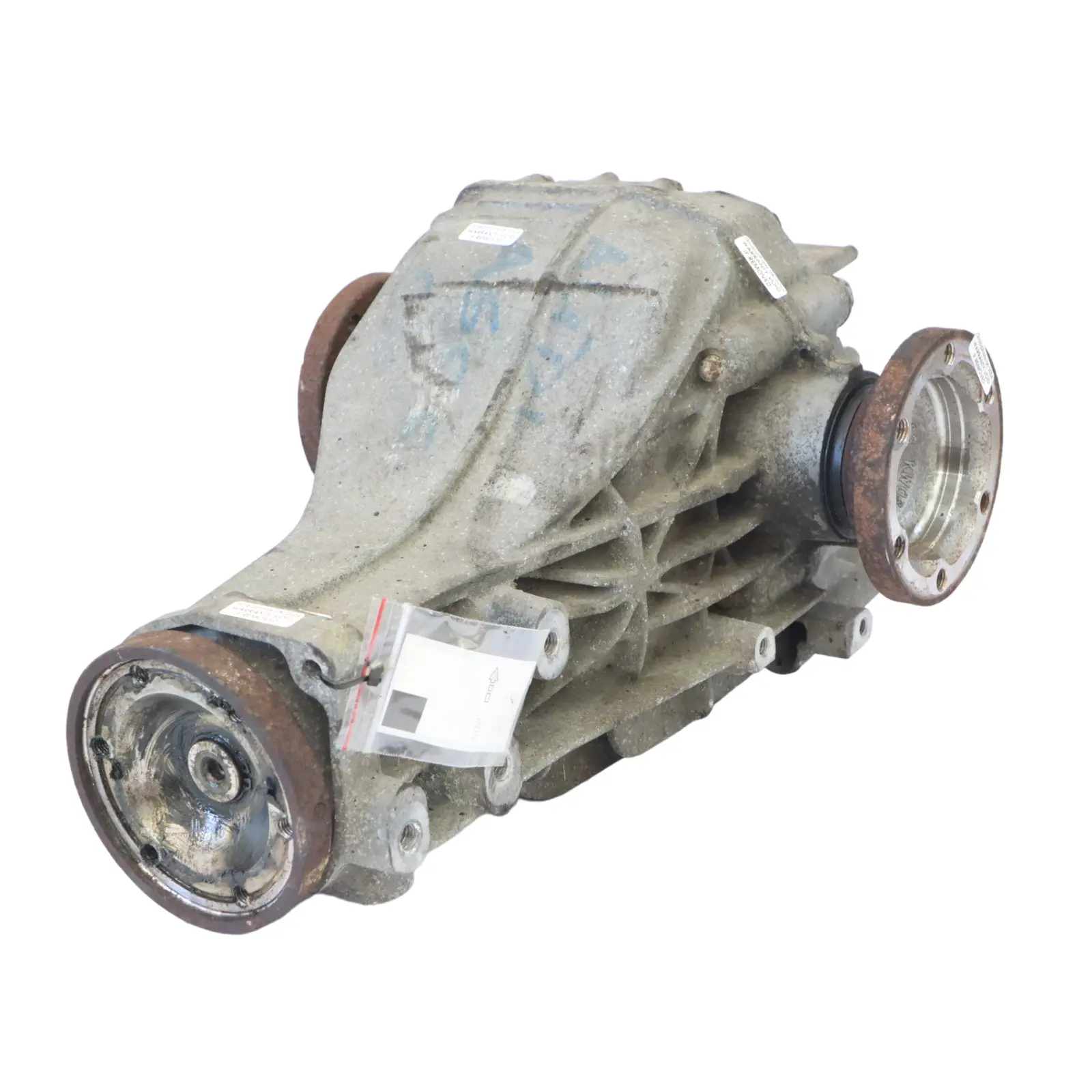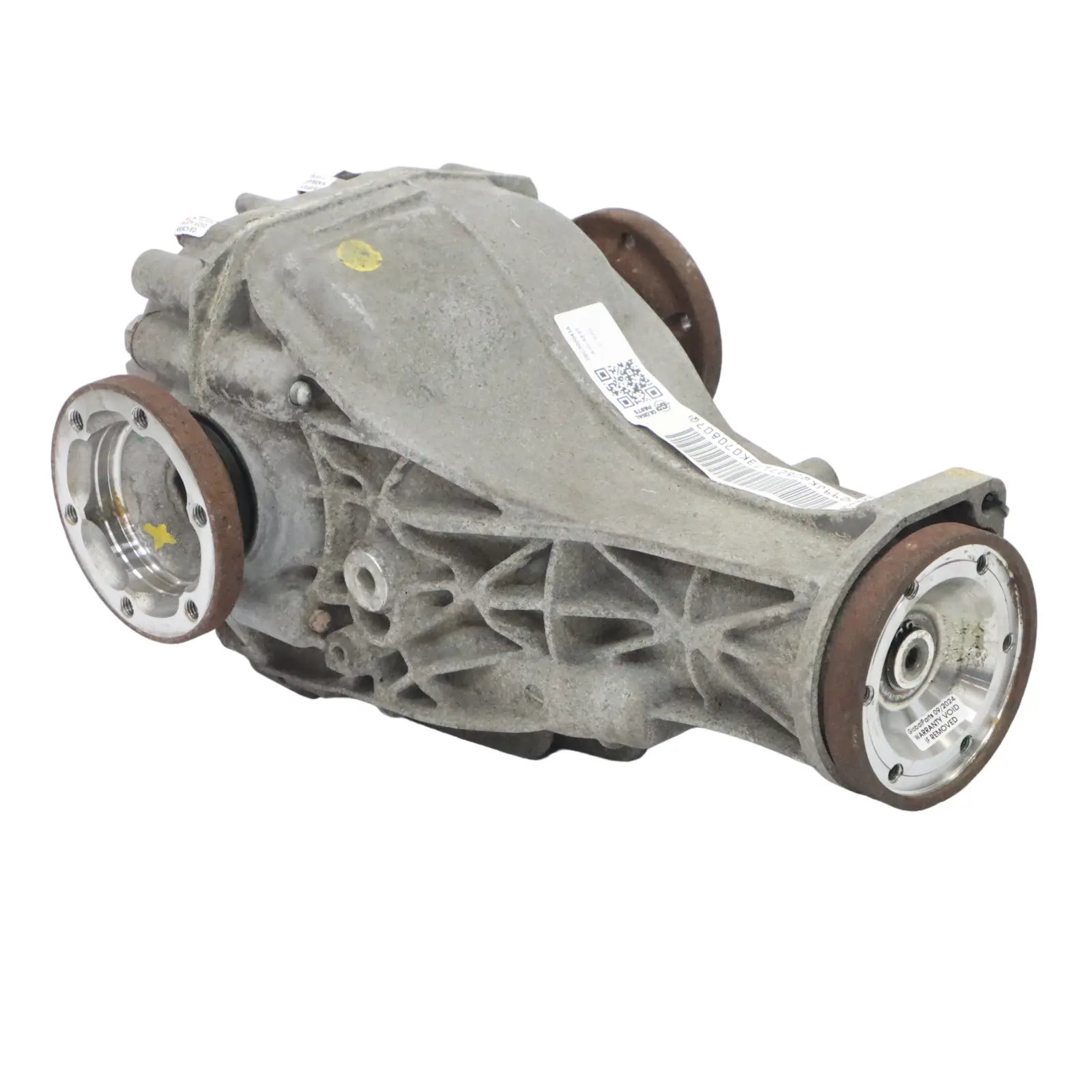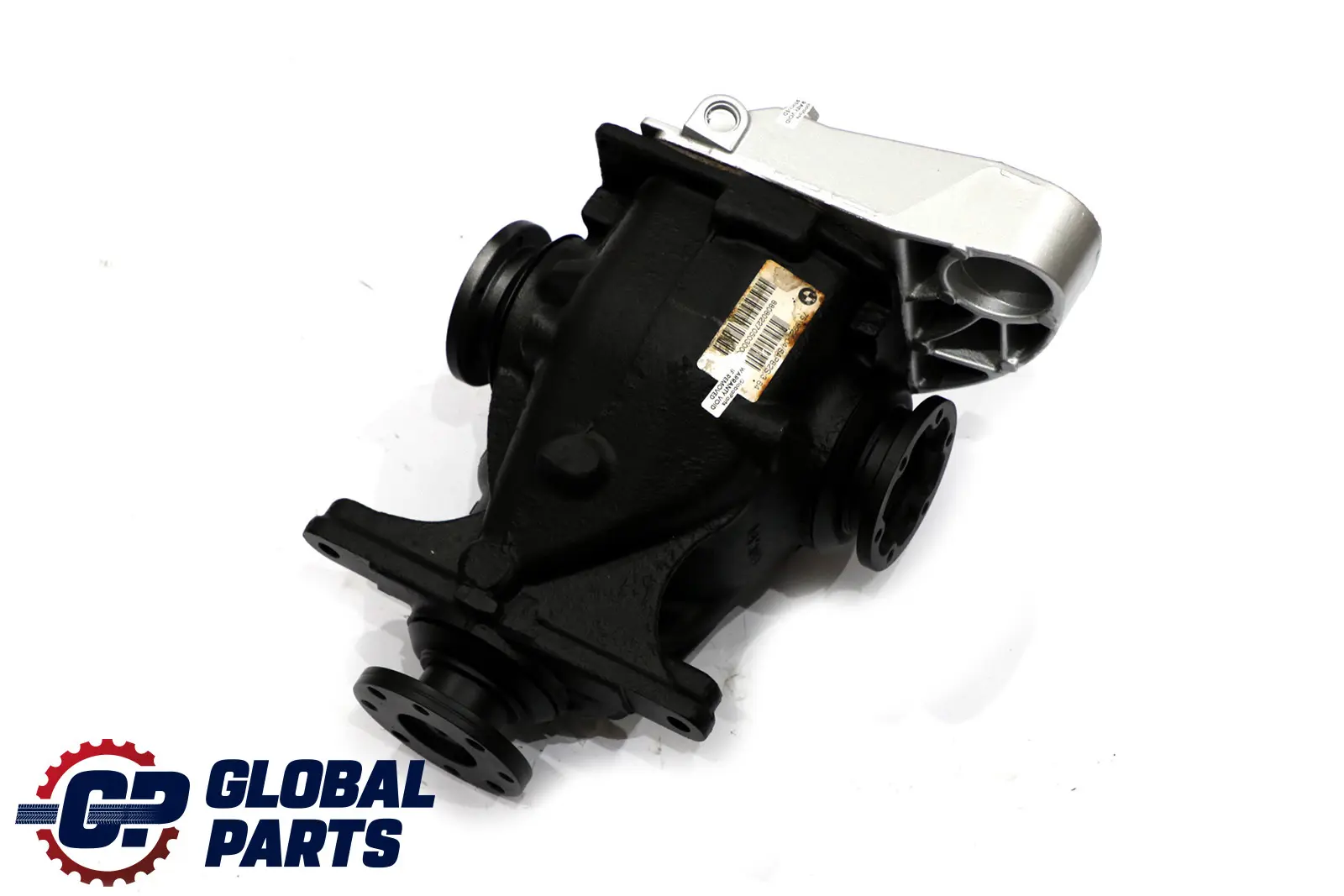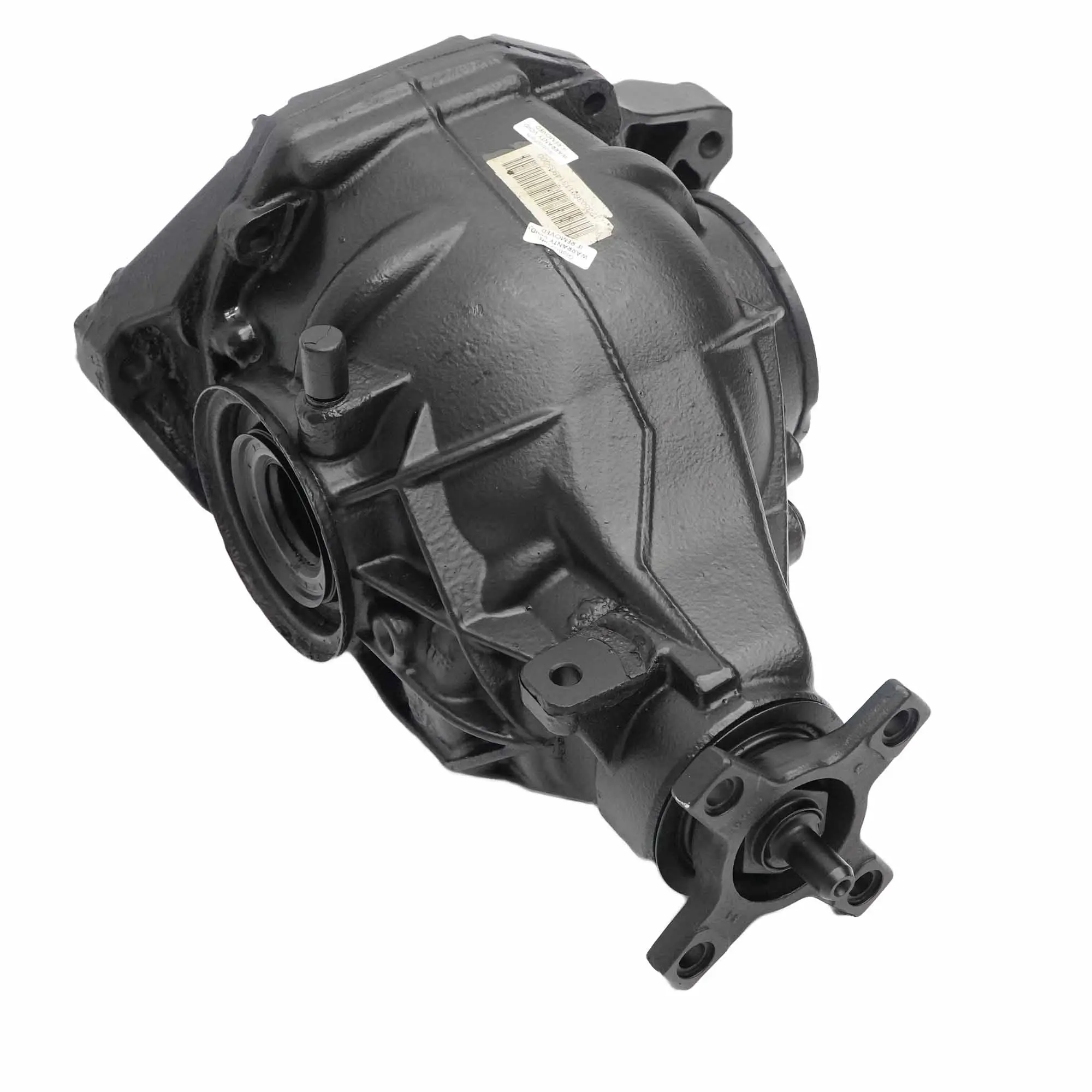Differential – the heart of a car's drive system
The differential gear (also known as a differential ) is a key component of a car's drivetrain, performing a crucial function. Its purpose is to allow the wheels on a single axle to rotate at different speeds, which is essential when cornering. This differential gear allows the car to maintain optimal traction, road stability, and even tire wear, which translates into longer tire life and lower fuel consumption .
In a classic open drivetrain, the differential transmits equal torque to both wheels, which can limit traction in some conditions. Therefore, limited-slip differentials (LSDs) are becoming increasingly popular. They intelligently redirect power to the wheel with better traction, significantly improving handling, especially on slippery surfaces or during dynamic driving. This is why sports models from brands such as BMW M and Audi S/RS are equipped with LSDs as standard, enhancing performance and road safety while also reducing fuel consumption.
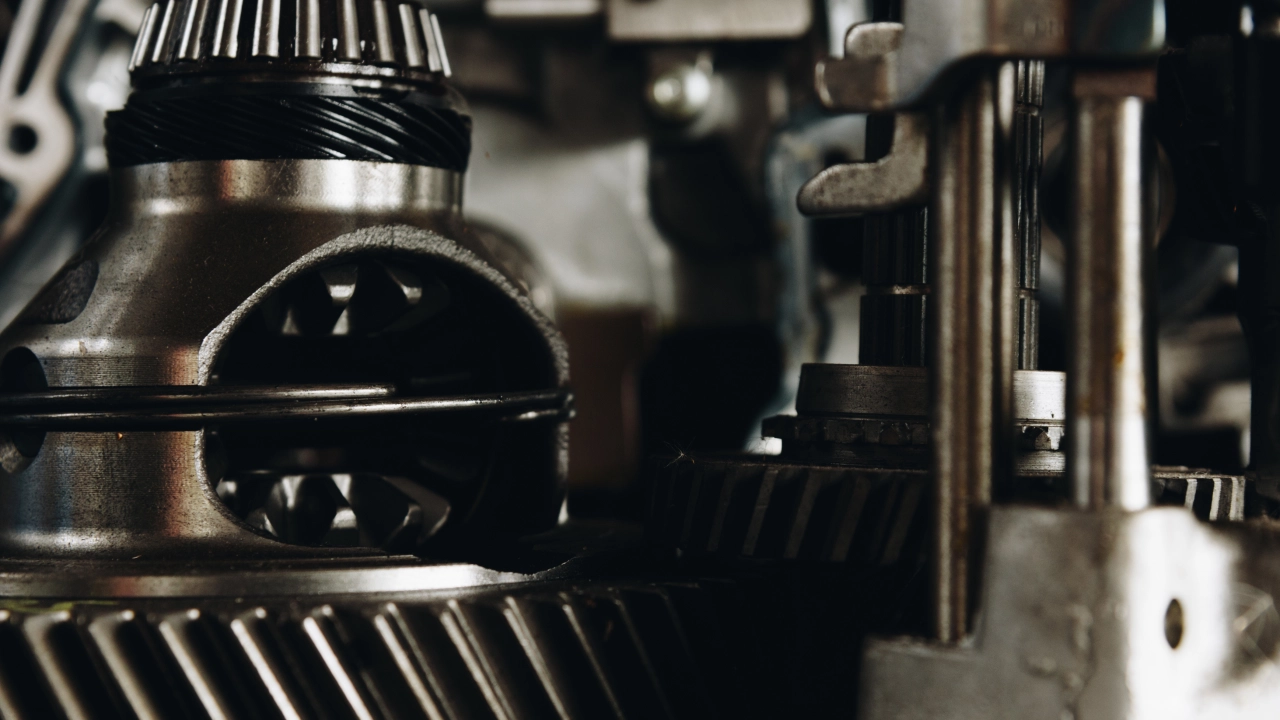
Symptoms of differential wear and incorrect oil pressure sensor readings
A worn differential gear exhibits characteristic symptoms that drivers should quickly recognize to avoid more serious damage. The most common symptom is a loud, increasing noise, resembling a howling, especially at speeds between 50 and 80 km/h. In vehicles such as the BMW X3 E83 or E90, specific noises during acceleration may indicate problems with the differential gear. Other models, such as the BMW E60, BMW F10, and BMW E46 330d, exhibit similar symptoms. Additionally, jerking when starting and unpleasant steering wheel vibrations may occur. BMW E90 and BMW E87 owners may also notice disturbing readings from the oil level sensor, which often accompany differential gear problems.
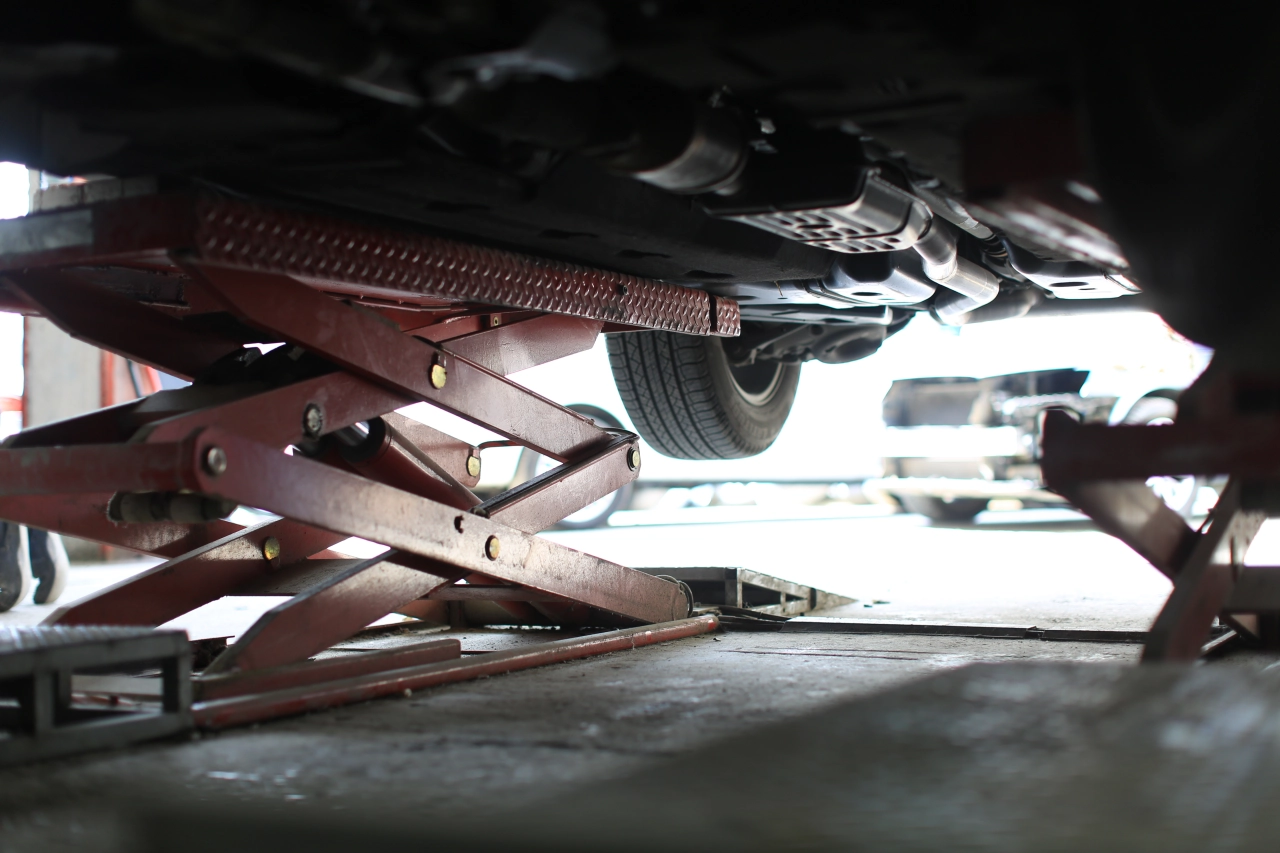 A similar phenomenon is observed in Mercedes vehicles – for example , in the W203 model, a malfunctioning oil level sensor may be linked to differential problems. Additionally, incorrect oil pressure sensor readings may suggest problems with the differential. Ignoring these symptoms can result in serious damage, such as shearing the final drive gear teeth, which can lead to a complete axle lockup and vehicle immobilization. Early detection of errors allows for effective repair measures, which are often less expensive than replacing the entire differential.
A similar phenomenon is observed in Mercedes vehicles – for example , in the W203 model, a malfunctioning oil level sensor may be linked to differential problems. Additionally, incorrect oil pressure sensor readings may suggest problems with the differential. Ignoring these symptoms can result in serious damage, such as shearing the final drive gear teeth, which can lead to a complete axle lockup and vehicle immobilization. Early detection of errors allows for effective repair measures, which are often less expensive than replacing the entire differential.
When to replace and when to rebuild the differential and drivetrain?
Decision to replace or recondition the differential depends on several factors, including parts availability and the driver's individual needs. Replacing a used differential This is a quick and often cheaper solution, provided it comes from a reputable source and has the correct gear ratio for the vehicle, for example , 3.46 in a Mercedes W203 differential or 2.47 in a Mercedes W204 and W212 differential . This type of purchase allows for a quick return to full vehicle operation without lengthy downtime. The price of a used differential is usually lower than that of a new one, making this solution attractive to many drivers concerned about fuel economy and an efficient drivetrain.
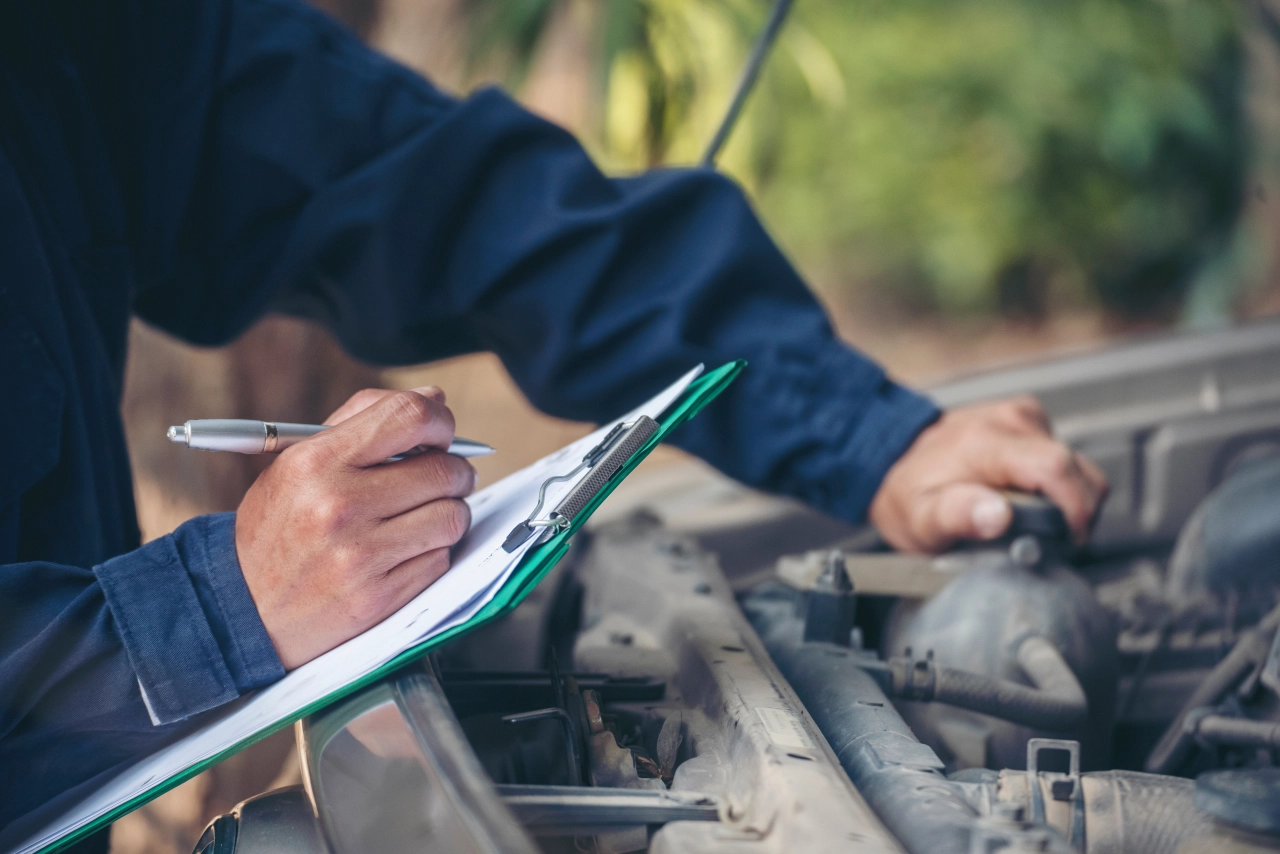 However, differential restoration is cost-effective when the differential gear has a rare or unusual gear ratio, such as:
However, differential restoration is cost-effective when the differential gear has a rare or unusual gear ratio, such as:
- 2.93 in the differential BMW E39 X1 E84 X3 E83 E90 E91
- 2.47 3.38 3.46 3.64 3.73 3.91 4.10 in BMW differential E81 E87 E90 E91
- Different gear ratios for the E46 differential, especially in sporty versions like the BMW E46 330d or when the owner wishes to retain the original differential in their car's drivetrain . The cost of reconditioning is usually lower than purchasing a brand new component, while also allowing the vehicle to maintain its original specifications. In both cases, the vehicle's VIN plays a key role, enabling precise part matching and minimizing the risk of errors.
How to safely buy a used differential and reduce fuel consumption?
Purchasing a used differential requires special care to avoid problems and hidden defects. Here are some basic rules:
- Source Verification – It's best to choose used parts stores that have a legal disassembly and testing protocol, such as Global Parts. This ensures customers that the components are verified and come from legitimate sources.
- Checking the gear ratio – this is stamped on the differential housing or nameplate (e.g., a BMW E46 330d differential has a gear ratio of 2.81, 2.28, or 3.15). In the case of a BMW X3 E83 differential, gear ratios can vary depending on the engine version, which has a significant impact on performance. The correct gear ratio is crucial for the proper operation of the drivetrain and directly affects how the wheels work together.
- Check radial clearance – excessive clearance indicates bearing wear, which can lead to more serious failures. Additionally, bearing problems can also cause incorrect oil pressure sensor readings.
- Assess the condition of the seals – wet flanges are a sign that the seals are worn and may soon require repair. It's also worth checking the operation of the oil level sensor. Damaged seals can lead to leaks and impair the performance of the entire differential.
- Selecting the right oil and checking the control systems – open axles typically use 75W-90 oil, while LSD differentials require a higher viscosity oil, such as 75W-140. At the same time, the pressure, temperature, and oil level sensors should be checked – their proper operation is crucial to the durability of the differential. In some BMW models, special attention should be paid to the oil level sensor, which can give false readings if the differential is damaged.
- Verifying the operation of the oil dipstick – the oil dipstick should show the correct level, confirming the tightness of the drive system.
Global Parts offer – differentials immediately available and expert support
Global Parts Automotive Store is a place where drivers will find a wide selection of differentials for various car makes and models. The offer includes, among others, BMW E90 differentials, E60 differentials, as well as: E81, E87, E91, F10, F20, F30, X3 E83 differentials; Mercedes W203, W204, W205, W212 W213 Sprinter W906 W907 differentials; Audi Quattro Q3, Q5, Q7, S3, RS3; VW 4Motion Tiguan, Touareg, and many others. Part prices depend on the model and technical condition and are always competitive with new parts . By providing the VIN number, the customer can count on comprehensive service from experts who:
- verify the gear ratio and differential type (open or LSD) along with compatibility for the classic drive system,
- advise whether purchasing a used component or refurbishing it would be a better solution,
- reserve the appropriate part or accept the bridge for regeneration,
- check and recommend appropriate oil sensors dedicated to a given model.
This ensures drivers receive a full warranty, proper fit, and expert support in selecting oil and other accessories. Properly selected drivetrain parts significantly impact the vehicle's overall performance, driving stability, and fuel economy. A functioning differential and regular oil level checks guarantee the longevity of all axle components, which translates into lower operating costs and greater driving comfort in the long run. Furthermore, our entire service process takes place in one place, eliminating the need to search for information on online forums or auctions, significantly simplifying and speeding up repairs.

FAQ – drivers' most frequently asked questions
Below you will find a list of the most common questions drivers ask, along with answers prepared by the Global Parts team:
| Question | Answer |
|---|---|
| BMW E60 E61 differential jerking when starting? | A typical symptom of worn bearings, the complete differential will need to be replaced or rebuilt. |
| BMW X3 E83 differential – what typical faults can we encounter? | The most common problems include a characteristic whining sound while driving and vibrations when accelerating, which usually indicate worn differential bearings. |
| BMW E87 E90 E91 differential – what oil? | Standard oil is 75W-90, which ensures optimal lubrication of the differential and protects the wheels from excessive wear. |
| Mercedes W203 or BMW E87 differential making noise when cornering? | The most common cause is worn bearings – replacement or purchase of a functioning axle is necessary. |
| Mercedes W203 differential – how to recognize the LSD version? | Versions with a limited-slip differential have a special marking on the housing and require dedicated differential oil. It's worth noting that the Mercedes W203 differential features a unique design that ensures precise power transfer in this popular model. |
| Mercedes W202 differential, does it fit the W210? | Yes, provided the part number and gear ratio are the same. |
| E46 differential – how to check its condition? | Pay attention to noises while driving and check the oil level. Abnormal readings may indicate problems with the differential. |
| BMW E87 E90 E91 differential whines at 60 km/h – what to do? | The entire differential will require reconditioning or replacement. The cost of this service depends on the extent of the damage. |
| BMW E90 and E87 oil level sensor – how does it affect the operation of the differential? | A faulty oil level sensor can lead to inadequate lubrication of the differential, which accelerates its wear and negatively affects the drivetrain. |
| BMW E90 and E87 oil level sensor – how often to replace? | The oil level sensor should be checked at every service and replaced if readings are incorrect. |
| Audi Quattro differential vibrates at low speed? | The rear differential bearings are usually the problem; replacement or reconditioning is required. |
| BMW , Audi , Mercedes , Mini differential – repair or replace? | In case of a cracked housing, it is better to replace it with a functioning differential, in case of only noise – to regenerate the bearings. |
| Does a faulty BMW E90 320i differential affect fuel consumption? | Yes, a functioning BMW E90 320i differential ensures optimal fuel consumption and smooth operation of the entire drive system, which translates into economical use. |
| Will the differential fit my car? | To ensure proper fitment, please provide your VIN. Proper fitment is crucial to the proper operation of the entire drivetrain. |
| Has the differential been rebuilt? | We sell both used and refurbished differentials. |
| Does LSD improve traction in snow? | Yes, LSD redirects torque to the wheel with better traction, making it easier to start on slippery surfaces and providing better fuel economy. |
Why is it worth having a functioning differential and drivetrain?
A functioning and regularly serviced differential is an investment that certainly pays off in everyday vehicle operation. It reduces tire wear, stabilizes the driving path, and ensures lower fuel consumption and fuel efficiency, as confirmed by numerous industry tests.
A properly functioning differential, combined with an efficient oil level and pressure sensor, is essential for the long life of a vehicle's entire drivetrain. A properly functioning differential allows for even wheel load distribution, which translates into better vehicle control. Regular inspections and monitoring of vehicle performance allow for early detection of potential problems, preventing more serious breakdowns.
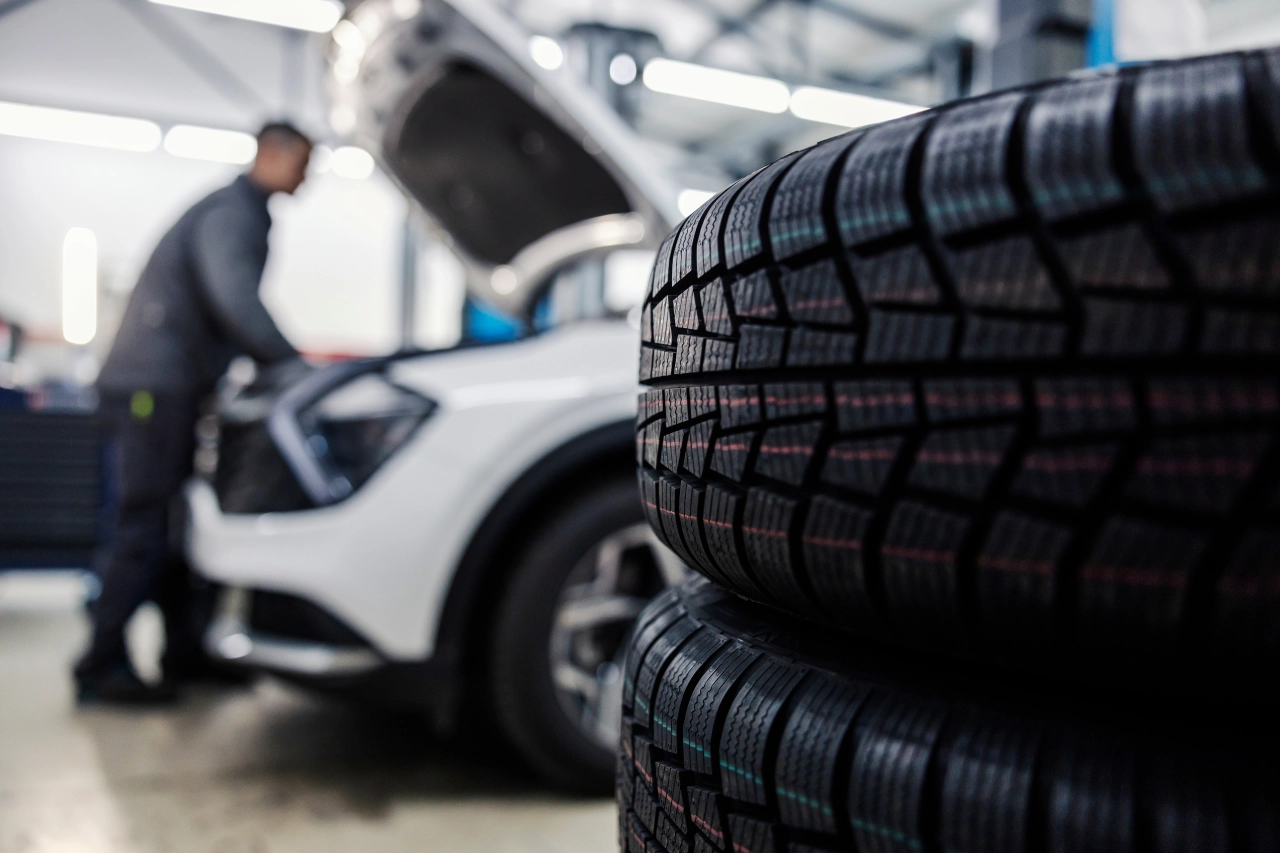 However, if a breakdown does occur, all you need to do is contact Global Parts, where you can find not only used parts for BMW (including the E90, E60, E46, F10 and E39 differentials), Mercedes (including the W203 differential), Audi and VW, but also professional assistance in the regeneration of differentials, which allows for a quick and trouble-free return to full operation of your car.
Remember that low fuel consumption depends largely on the efficiency of the differential and the entire differential axle, and investing in its regular maintenance and quick repair in case of problems will quickly pay off - not only in the form of fuel savings, but also in avoiding costly repairs to the entire drive system of the car.
In summary, purchasing a used differential gear is not only a matter of saving money, but above all, a conscious choice. A well-selected and proven component can last a long time, ensuring safe and comfortable driving. However, ignoring the first signs of differential wear, such as noise or vibration, can lead to more serious breakdowns and costly repairs.
Remember that regular maintenance and inspection of the drivetrain are key to the longevity of your car. If you notice any worrying symptoms, don't delay visiting a specialist. Early diagnosis and possible differential rebuild can prevent larger problems and additional expenses.
However, if a breakdown does occur, all you need to do is contact Global Parts, where you can find not only used parts for BMW (including the E90, E60, E46, F10 and E39 differentials), Mercedes (including the W203 differential), Audi and VW, but also professional assistance in the regeneration of differentials, which allows for a quick and trouble-free return to full operation of your car.
Remember that low fuel consumption depends largely on the efficiency of the differential and the entire differential axle, and investing in its regular maintenance and quick repair in case of problems will quickly pay off - not only in the form of fuel savings, but also in avoiding costly repairs to the entire drive system of the car.
In summary, purchasing a used differential gear is not only a matter of saving money, but above all, a conscious choice. A well-selected and proven component can last a long time, ensuring safe and comfortable driving. However, ignoring the first signs of differential wear, such as noise or vibration, can lead to more serious breakdowns and costly repairs.
Remember that regular maintenance and inspection of the drivetrain are key to the longevity of your car. If you notice any worrying symptoms, don't delay visiting a specialist. Early diagnosis and possible differential rebuild can prevent larger problems and additional expenses.
